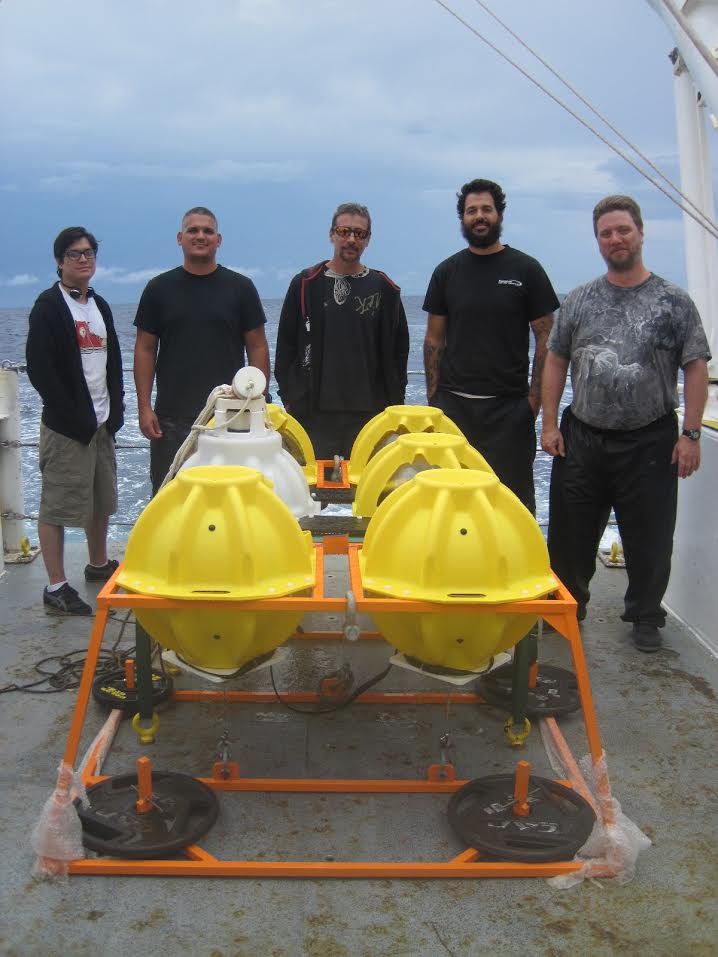The AOML technology test of a system to autonomously retrieve data from subsurface moored instruments has had a major success. The Adaptable Bottom Instrument Information Shuttle System (ABIISS) is in the midst of its first 4000+ meter test, and on November 6th, 2015 the first data pod surfaced and successfully transmitted its daily data record from the ocean bottom pressure-equipped inverted echo sounder. This data pod, which is the first of four that will surface during the 18-month deployment of the ABIISS, has demonstrated that the new system is working properly in the deep ocean environment. Continued success will reduce the need for manned research cruises to retrieve and download data from these subsurface moored instruments and will help NOAA redistribute its limited ship resources to other important ocean-based projects.
AOML began the deep water field test of the “ABIISS” data pod system in 2014. The ability to retrieve data from deep ocean instruments at regular intervals via a data pod system greatly reduces observing system costs, which currently requires ship time to retrieve data every 6-12 months. Scientists deployed the data pod package off the Florida shelf in approximately 750 meters of water in December 2014. The submerged system rests on the ocean floor where it collects measurements during the 6-month field test period. At predetermined intervals, data pods are released and floated to the ocean surface to transmit their recorded data via satellite. If proven successful, the data pod system will be deployed as part of existing ocean observing networks in the Atlantic and around the globe.
Read more about the ABIISS system here.
